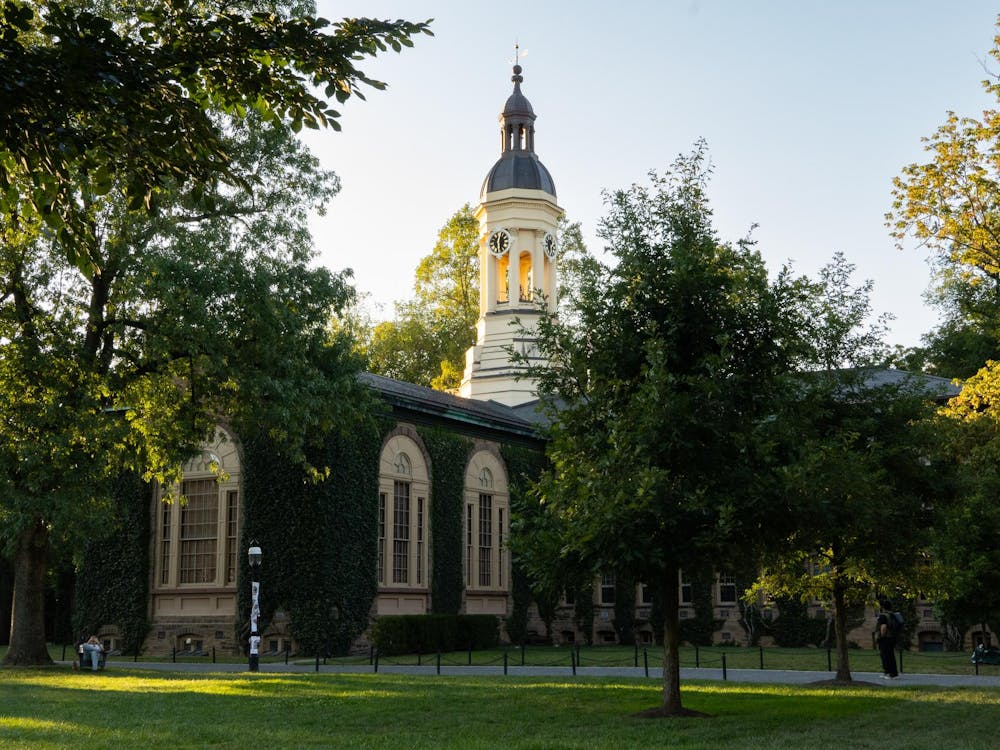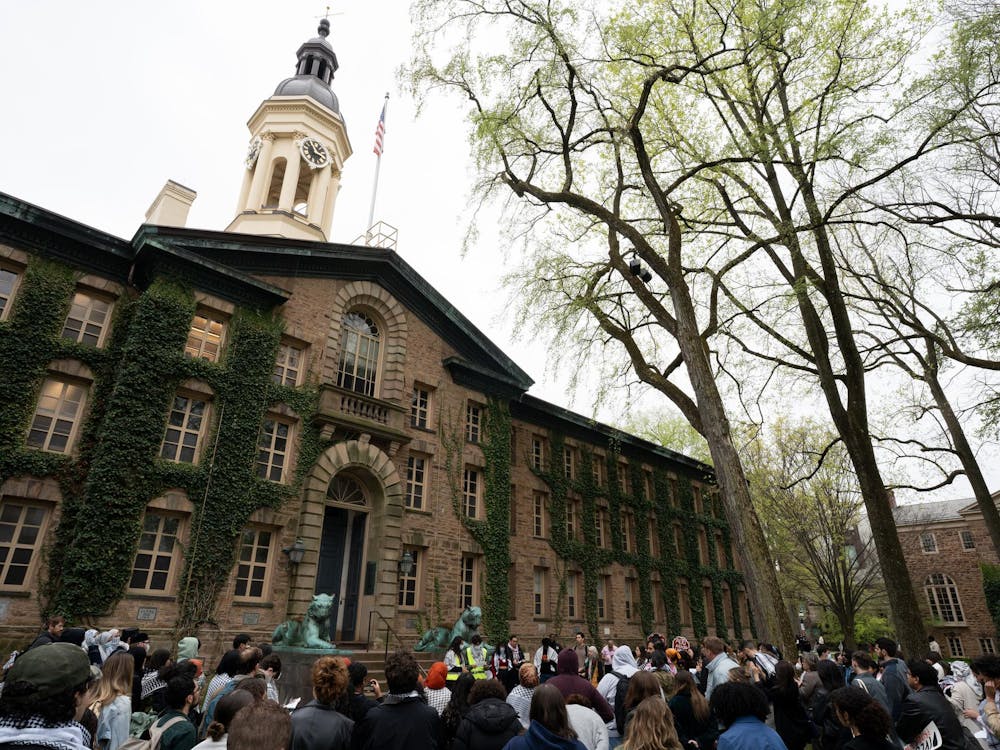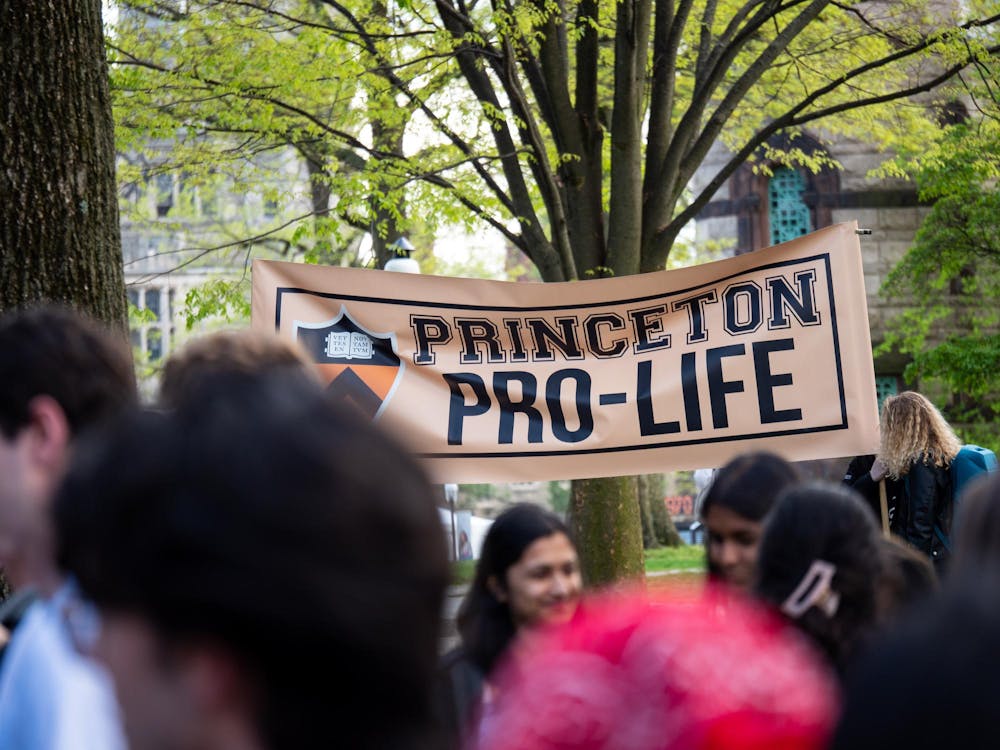The Princeton University Orchestra (PUO) is ranked as one of the top 20 college orchestras in the US. Led by conductor Michael Pratt, who celebrated his 40th season with the Orchestra this past fall, PUO performs a wide range of repertoire, from the classical period through the modern works of today.
PUO was founded in 1896 by a group of professional musicians from the New York Symphony and Philharmonic Societies. It now consists of University undergraduate and graduate students.
“Any successful orchestra has some basic things in common,” said conductor Michael Pratt. He lists “technical ability and innate musicality among the players, a conductor who knows what he is doing, both in technical matters, like a clear beat and musical/leadership skills, and a mutual commitment and belief in each other” as important factors in an orchestra’s success.
“I think a big reason why PUO is ranked so high is because of its musicians. PUO has a large pool of musical talent to select from,” said Steven Chien ’20, a cellist in the orchestra.
Musical ability can impact a student’s admission to the University. Pratt explains that the music department’s three conductors and all the Lewis Center for the Art’s heads of departments are involved with the Office of Admission. “I, myself, with the help some others in the performance faculty, review hundreds of recordings sent with the arts supplement,” Pratt said.
Pratt explained that, unlike the University’s peer institutions, which only review arts supplement recordings, he evaluates several dozen live auditions each year. He then sends a “Gotta Have” list to the Office of Admission, and once admissions decisions are made, he encourages musicians on his list to choose Princeton.
To best allow existing strong talent to flourish, reasonable rehearsal and time expectations accommodate talented musicians who also take challenging classes and have other time commitments.
“[Pratt] really understands the difficulties of academics at Princeton, so he isn't unreasonable with the time he expects of us. I think this is the biggest factor that keeps many members engaged with the ensemble,” Chien said.
Pratt expresses similar ideas, saying that “in an orchestra in a university like Princeton, there has to be the right balance between recognition of the intensity of academics, yet still insistence that a certain standard of preparation and attendance be maintained.”
The University’s support of the arts, especially with the addition of the new Lewis Center to campus rehearsal space, serves as an added benefit for orchestral musicians.
“We are particularly lucky this year to have the amazing Lewis Center as a new rehearsal space,” said Thomas Graul ’20, who plays double bass.
The surrounding community also demonstrates an enthusiasm for the arts.

“From my freshman year on, I have also been amazed at the support we receive from the greater Princeton community; we frequently fill Richardson Auditorium,” Graul added, explaining that the orchestra was a factor in Graul’s decision to attend the University.
The orchestra has grown and evolved over Pratt’s 40 years as conductor.
“PUO, when I arrived in 1977, was already a serious and hard-working group that wanted to stretch themselves. There were some strong players, just not as many of them. The deepening commitment of first the department and then the University to performance led to the establishment of the Program in Musical Performance in 1991, which led to Princeton becoming more of a desirable destination for talented students. All that led naturally to the flowering we see today, with Lewis Center Complex, a powerful manifestation of Princeton’s commitment to the arts,” Pratt explained.
Student musicians credit Pratt for the orchestra’s success. “I think a lot of our success as an orchestra is owed to our amazing conductor, Michael Pratt. Over the past [forty] years he’s transformed the music performance program at Princeton,” said Graul.
“[Pratt has] really crafted and reshaped the music department during his time here at Princeton, which is why it is so strong now,” Chien added.
Though PUO has changed over Pratt’s 40 years, he’d like to see more changes in the future.
“I would like to see a way that students could see their time in PUO on their transcript. Maybe find a way to make it a course, like Harvard. I’d also like to find ways, from time to time, to break the big group into subsets to vary the repertory more,” he said.
His guiding mission has remained the same, though, and he continues to inspire student musicians. “It is my passion to guide students into the interior of this music that I have loved so deeply for so long,” Pratt said.
There are several more opportunities left to experience PUO’s music this year. On Mar. 9 and 10, the winners of this year’s concerto competition will be featured, and on Apr. 27 and 28, PUO will present Benjamin Britten’s “War Requiem” with the University’s Glee Club, Princeton ProMusica, and the American Boychoir. The annual Reunions Fireworks Concert will be held on June 2.








